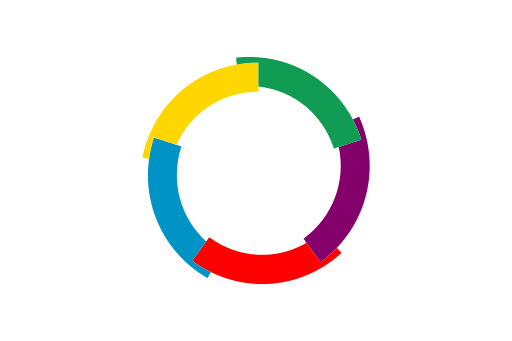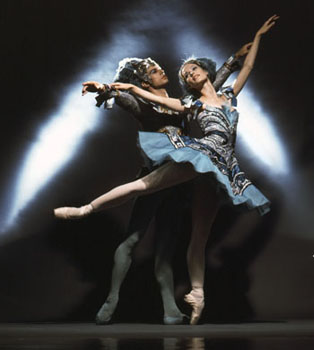Browse "People"
-
Article
Françoise Faucher
Françoise Faucher, actor, director, and moderator (b at Montmorency, France, 1929). Trained in drama in France under René Simon and Bernard Bimont, Faucher immigrated to Canada in the early 1950s with her husband Jean Faucher, also involved in theatre.
"https://development.thecanadianencyclopedia.ca/images/tce_placeholder.jpg?v=e9dca980c9bdb3aa11e832e7ea94f5d9" // resources/views/front/categories/view.blade.php
https://development.thecanadianencyclopedia.ca/images/tce_placeholder.jpg?v=e9dca980c9bdb3aa11e832e7ea94f5d9
-
Article
Françoise Loranger
Françoise Loranger, dramatist, novelist (b at St-Hilaire, Qué 18 June 1913; d 8 April 1995). Her novel, Mathieu (1949), a gloomy portrayal of Québec society in the DUPLESSIS era, received critical acclaim, but it is chiefly on her dramatic texts, many televised nationally, that her reputation rests.
"https://development.thecanadianencyclopedia.ca/images/tce_placeholder.jpg?v=e9dca980c9bdb3aa11e832e7ea94f5d9" // resources/views/front/categories/view.blade.php
https://development.thecanadianencyclopedia.ca/images/tce_placeholder.jpg?v=e9dca980c9bdb3aa11e832e7ea94f5d9
-
Article
Françoise-Marie de Saint-Étienne de La Tour
Françoise-Marie de Saint-Étienne de La Tour, née Jacquelin, Acadian heroine (b in France 1602; d at Ft La Tour [NB] 1645). Civil war raged in Acadia in 1640 when she married Charles de Saint-Étienne de LA TOUR, one of 2 claimants to the colony's governorship.
"https://d2ttikhf7xbzbs.cloudfront.net/media/media/4fc6b68c-735c-4311-b452-cbbdfebe9ce7.jpg" // resources/views/front/categories/view.blade.php
https://d2ttikhf7xbzbs.cloudfront.net/media/media/4fc6b68c-735c-4311-b452-cbbdfebe9ce7.jpg
-
Article
Françoise Sullivan
Françoise Sullivan, sculptor, painter, dancer and choreographer (b at Montréal 10 Jun 1925). Sullivan studied at the École des beaux-arts de Montréal between 1941 and 1945.
"https://development.thecanadianencyclopedia.ca/images/tce_placeholder.jpg?v=e9dca980c9bdb3aa11e832e7ea94f5d9" // resources/views/front/categories/view.blade.php
https://development.thecanadianencyclopedia.ca/images/tce_placeholder.jpg?v=e9dca980c9bdb3aa11e832e7ea94f5d9
-
Article
Francophone
In Canada, the term francophone can refer to someone whose first language is French. They might most often use it to speak, read, write or think. French might also be their most often used language at home. Being francophone can also simply mean being able to speak the language fluently. According to the 2016 census, approximately 10.36 million Canadians, or 29.8 per cent of the population, declared being able to communicate in French. Around 7.167 million reported that French was their only mother tongue while 7.706 million Canadians declared French as the first official language they spoke.
"https://d2ttikhf7xbzbs.cloudfront.net/TCE_placeholder.png" // resources/views/front/categories/view.blade.php
https://d2ttikhf7xbzbs.cloudfront.net/TCE_placeholder.png
-
Article
Francophones of Alberta (Franco-Albertains)
In the Prairies, the names of rivers and trading posts bear the mark of explorers and voyagers who travelled the region during the 18th and 19th centuries. Agriculture and the petroleum industry attracted many migrants from Quebec, Acadia, Ontario and neighbouring provinces, but also from New-England, France and Belgium. In 2016, 418,000 Albertans (10.5 per cent of the population) were of French or French-Canadian origins (see: Francophone; Alberta; History of Settlement in the Canadian Prairies).
"https://d2ttikhf7xbzbs.cloudfront.net/media/new_article_images/francoalbertains/franco_albertan_flag_drapeau.jpg" // resources/views/front/categories/view.blade.php
https://d2ttikhf7xbzbs.cloudfront.net/media/new_article_images/francoalbertains/franco_albertan_flag_drapeau.jpg
-
Article
Francophones of British Columbia
The francophone presence in British Columbia has its origins in the colonization of the Pacific Northwest by Europeans at the turn of the 19th century.
"https://d2ttikhf7xbzbs.cloudfront.net/media/media/bfb65c27-6395-4d1f-b12b-84c6f760fb29.png" // resources/views/front/categories/view.blade.php
https://d2ttikhf7xbzbs.cloudfront.net/media/media/bfb65c27-6395-4d1f-b12b-84c6f760fb29.png
-
Article
Francophones of Manitoba
Manitoba’s “francophonie” is the term used to designate French-speakers in Manitoba, historically referred to as “Franco-Manitobans.” Changes in 2017 to the name of the Société de la francophonie manitobaine (formerly the Société franco-manitobaine) and the definition of “francophone” in the provincial law on French language services reflect the changing nature of the community itself. The core of Manitoba’s francophones is formed by descendants of voyageurs as well as settlers from Québec and Europe, but since the early 2000s the community has seen a growing number of immigrants from non-European countries as well as an increasing integration of francophones for whom French is not their first language.
"https://d2ttikhf7xbzbs.cloudfront.net/media/media/bc92f05e-a646-436a-b90f-69d490ba42f5.png" // resources/views/front/categories/view.blade.php
https://d2ttikhf7xbzbs.cloudfront.net/media/media/bc92f05e-a646-436a-b90f-69d490ba42f5.png
-
Article
Francophones of Nunavut (Franco-Nunavois)
The Franco-Nunavois are Francophones living in Nunavut. Their number is on the rise and, between 2006 and 2016, it grew from 465 to 616, representing 1.7% of the territorial population. Four out of five Franco-Nunavois live in the capital, Iqaluit. This population settled recently: only 13% of the Francophones in the territory are Franco-Nunavois by birth. French is a second or third language for 900 more people.
"https://d2ttikhf7xbzbs.cloudfront.net/media/new_article_images/FrancoNunavois/Flag_of_the_Franco-Nunavois.png" // resources/views/front/categories/view.blade.php
https://d2ttikhf7xbzbs.cloudfront.net/media/new_article_images/FrancoNunavois/Flag_of_the_Franco-Nunavois.png
-
Article
Francophones of Saskatchewan (Fransaskois)
The Fransaskois are francophones living in Saskatchewan. According to recent Canadian statistics, 1.5 per cent of the population (16,373 inhabitants) have French as their mother tongue and 1.3 per cent of the population (14,440 inhabitants) have French as their first official language (see French language in Canada).
"https://d2ttikhf7xbzbs.cloudfront.net/media/new_article_images/Fransaskois/Flag_Francophones_Saskatchewan_Fransaskois.png" // resources/views/front/categories/view.blade.php
https://d2ttikhf7xbzbs.cloudfront.net/media/new_article_images/Fransaskois/Flag_Francophones_Saskatchewan_Fransaskois.png
-
Article
Francophones of the Northwest Territories (Franco-Ténois)
The Franco-Ténois are francophones living in the Northwest Territories (NWT), where they represent a minority (4 per cent in Yellowknife and 3 per cent in Hay River) consisting mainly of expatriates: 58 per cent were born in Quebec and 90 per cent outside the NWT. Members of the immigrant population are bilingual, and the children attend school while the adults work mostly in public administration, education, health care and social services.
"https://d2ttikhf7xbzbs.cloudfront.net/media/new_article_images/FrancoTenois/Flag_of_the_FrancoTenois.svg.png" // resources/views/front/categories/view.blade.php
https://d2ttikhf7xbzbs.cloudfront.net/media/new_article_images/FrancoTenois/Flag_of_the_FrancoTenois.svg.png
-
Article
Francophonie and Canada
The term francophonie has been in common use since the 1960s. It has several meanings. In its most general sense, it refers to all peoples and communities anywhere in the world that have French as their mother tongue or customary language. The term can also refer to the wider, more complex network of government agencies and non-government organizations that work to establish, maintain and strengthen the special ties among French-speaking people throughout the world. Lastly, the expression “La Francophonie” is increasingly used as shorthand for the Organisation internationale de la Francophonie (International Organisation of La Francophonie).
"https://d2ttikhf7xbzbs.cloudfront.net/media/media/5a849720-0aa9-4516-a19a-0b599bde2bc2.png" // resources/views/front/categories/view.blade.php
https://d2ttikhf7xbzbs.cloudfront.net/media/media/5a849720-0aa9-4516-a19a-0b599bde2bc2.png
-
Article
Françoys Bernier
Françoys (Joseph Arthur Maurice) Bernier. Pianist, conductor, producer, administrator, teacher, b Quebec City 12 Jul 1927, d Quebec City 3 Feb 1993. He began his musical studies as a child with his grandfather, Joseph-Arthur.
"https://development.thecanadianencyclopedia.ca/images/tce_placeholder.jpg?v=e9dca980c9bdb3aa11e832e7ea94f5d9" // resources/views/front/categories/view.blade.php
https://development.thecanadianencyclopedia.ca/images/tce_placeholder.jpg?v=e9dca980c9bdb3aa11e832e7ea94f5d9
-
Article
Frank Albert Sherman
Frank Albert Sherman, industrialist (b at Crown Point, NY 19 May 1887; d at Surfside, Fla 27 Jan 1967).
"https://development.thecanadianencyclopedia.ca/images/tce_placeholder.jpg?v=e9dca980c9bdb3aa11e832e7ea94f5d9" // resources/views/front/categories/view.blade.php
https://development.thecanadianencyclopedia.ca/images/tce_placeholder.jpg?v=e9dca980c9bdb3aa11e832e7ea94f5d9
-
Article
Frank Augustyn
In 1980 Augustyn joined the Berlin Opera Ballet, returning to the National Ballet in 1981, when he also became permanent guest artist with the Boston Ballet.
"https://d2ttikhf7xbzbs.cloudfront.net/media/media/a2af4648-5357-4f27-b586-3c2786667108.jpg" // resources/views/front/categories/view.blade.php
https://d2ttikhf7xbzbs.cloudfront.net/media/media/a2af4648-5357-4f27-b586-3c2786667108.jpg
